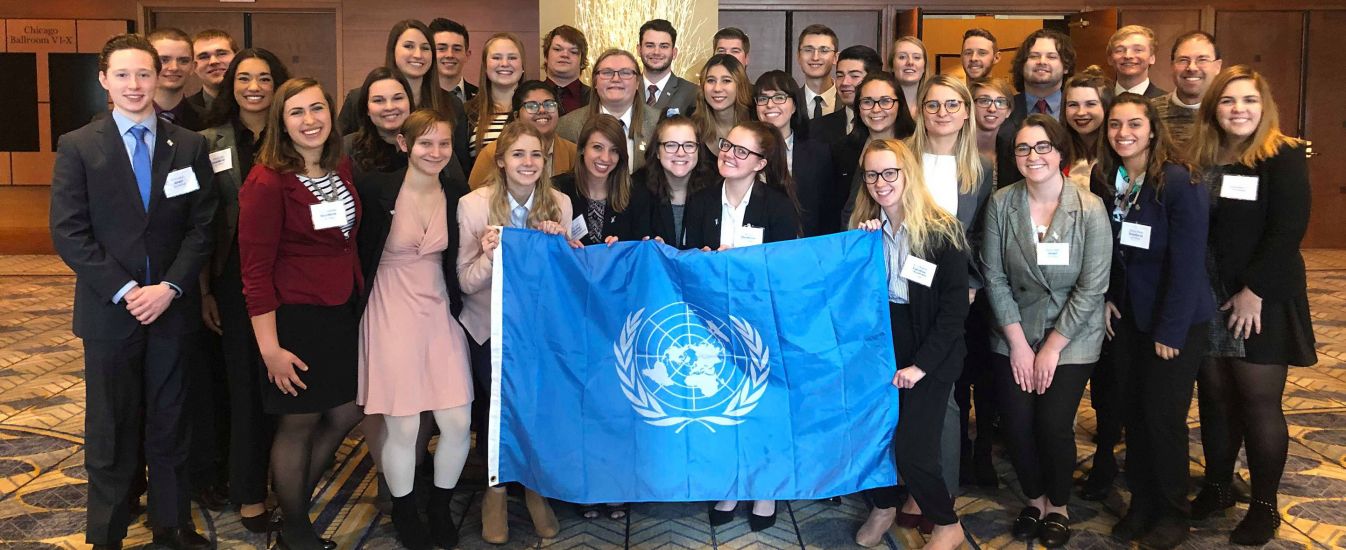UN Human Rights Council Topic 2
Discrimination and Genocide of Uyghurs in China
In Resolution 28/34, “Prevention of Genocide,” the UN Human Rights Council (UNHRC) reaffirms and emphasizes the significance of condemning and preventing genocide. Article II of the Convention on the Prevention and Punishment of the Crime of Genocide defines genocide as “the following acts committed with intent to destroy, in whole or in part, a national, ethnical, racial or religious group, as such: (a) Killing members of the group; (b) Causing serious bodily or mental harm to members of the group; (c) Deliberately inflicting on the group conditions of life calculated to bring about its physical destruction in whole or in part; (d) Imposing measures intended to prevent births within the group; (e) Forcibly transferring children of the group to another group.”
In 2022 the Office of the UN High Commissioner for Human Rights (OHCHR) reported on “‘serious human rights violations’ against the Uyghur and ‘other predominantly Muslim communities’” in the Xinjiang Uyghur Autonomous Region (XUAR) (“OHCHR Assessment of human rights concerns in the Xinjiang Uyghur Autonomous Region, People’s Republic of China.”). This report gives an in-depth historical context of alleged terrorist violence occurring within the region, violence that has been committed against Uyghur and other Muslim minorities, as well as statistics such as a sharp decrease in birth rates in the XUAR.
XUAR is a region with many resources such as oil, coal, and gas, as well as an essential source of agricultural production (“OHCHR Assessment of human rights concerns in the Xinjiang Uyghur Autonomous Region, People’s Republic of China.”). Despite the economic growth within the region in the past ten years, there have been concerns raised by UN Human Rights mechanisms concerning discrimination in the region’s cultural, economic, and social spheres. When riots broke out in the region’s capital, Urumqi, in July 2009, the Government stated that it resulted from separatism, extremism, and terrorism. In May 2014, the Chinese government issued a “Strike Hard” campaign in which they targeted terrorism and separatism within the region that was allegedly connected to religious extremism (“OHCHR Assessment of human rights concerns in the Xinjiang Uyghur Autonomous Region, People’s Republic of China.”).
One of the Chinese government’s counter-terrorism measures has been the creation of Vocational Education and Training Centres (VETCs), which the Government stated to be voluntary and beneficial in combating terrorism (“OHCHR Assessment of human rights concerns in the Xinjiang Uyghur Autonomous Region, People’s Republic of China.”). Numerous accounts from those who had been in VETCs reported experiencing or seeing various forms of violence such as sexual, physical, emotional, and psychological violence and torture, as well as being taken to such facilities and held unwillingly (“OHCHR Assessment of human rights concerns in the Xinjiang Uyghur Autonomous Region, People’s Republic of China.”).
Ethnic, religious, and racial minorities have experienced discrimination and violence throughout history. With the evidence of genocide and discrimination described in the UN Human Rights Office’s assessment of human rights concerns in Xinjiang, China, it is the responsibility of Member States to take into account the recommendations made within the report and form an opinion on whether or not the People’s Republic of China has committed genocide against their Uyghur population, and if they should be condemned for carrying out that said genocide.
Questions to consider:
- How does your state define human rights?
- How does your country treat its own ethnic and/or religious minorities?
- How does your country interact and deal with refugees, particularly in the event of an increasingly evident genocide?
- How has your country reacted or taken action concerning genocide in the past?
- How can Member States be held accountable for identifying and acting against terrorism?
- Are there possible suggestions for ensuring that counter-terrorism can occur cohesively and without violating human rights?
Resources to Consider:
“Convention on the Prevention and Punishment of the Crime of Genocide.” United Nations, 1948 https://www.ohchr.org/en/instruments-mechanisms/instruments/convention-prevention-and-punishment-crime-genocide
“International Convention on the Elimination of all Forms of Racial Discrimination,” United Nations, 2005,
“OHCHR Assessment of human rights concerns in the Xinjiang Uyghur Autonomous Region, People’s Republic of China.” United Nations, 2022,
“Prevention of Genocide.” United Nations, 2015, https://documents-dds-ny.un.org/doc/UNDOC/GEN/N05/502/66/PDF/N0550266.pdf?OpenElement
Works Cited
“Convention on the Prevention and Punishment of the Crime of Genocide.” United Nations, 1948, https://www.ohchr.org/en/instruments-mechanisms/instruments/convention-prevention-and-punishment-crime-genocide
“International Convention on the Elimination of all Forms of Racial Discrimination,” United Nations, 2005,
“OHCHR Assessment of human rights concerns in the Xinjiang Uyghur Autonomous Region, People’s Republic of China.” United Nations, 2022,
“Prevention of Genocide.” United Nations, 2015, https://documents-dds-ny.un.org/doc/UNDOC/GEN/N05/502/66/PDF/N0550266.pdf?OpenElement
“UN Human Rights Office issues assessment of human rights concerns in Xinjiang, China.” United Nations, 2022 https://www.ohchr.org/en/press-releases/2022/08/un-human-rights-office-issues-assessment-human-rights-concerns-xinjiang

